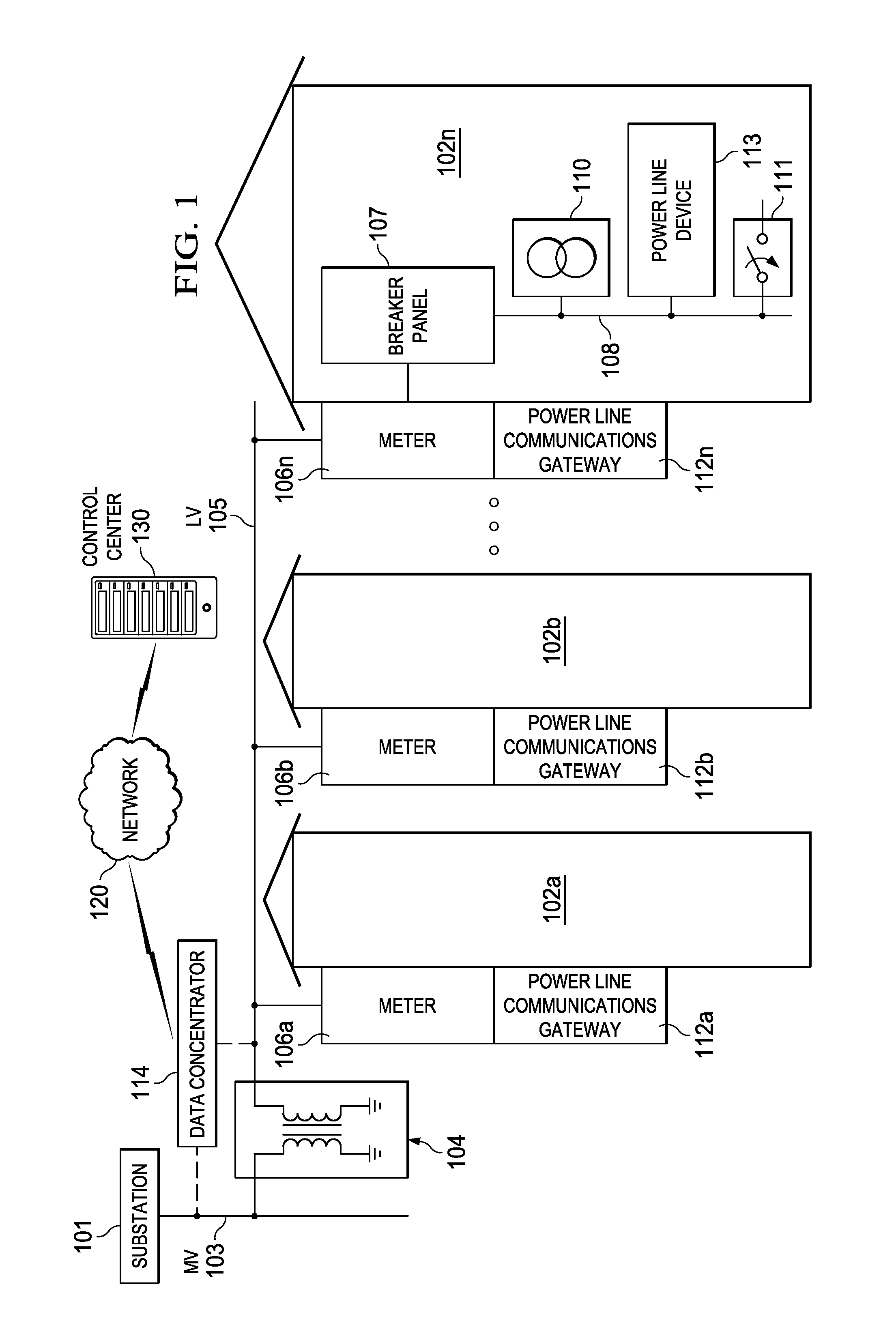Overlapping priority contention windows for G3 power line communications networks
a technology of g3 power line and priority contention, applied in powerline communications applications, power distribution line transmission, data switching networks, etc., can solve the problems of affecting the achievable throughput, waste of network resources, delay in hpcw window, etc., to improve network throughput, improve network throughput, and improve network performance.
- Summary
- Abstract
- Description
- Claims
- Application Information
AI Technical Summary
Benefits of technology
Problems solved by technology
Method used
Image
Examples
Embodiment Construction
[0020]The invention now will be described more fully hereinafter with reference to the accompanying drawings. This invention may, however, be embodied in many different forms and should not be construed as limited to the embodiments set forth herein. Rather, these embodiments are provided so that this disclosure will be thorough and complete, and will fully convey the scope of the invention to those skilled in the art. One skilled in the art may be able to use the various embodiments of the invention.
[0021]The G3-PLC standard requires separate contention windows for high priority frames and normal priority frames. Embodiments of the present invention are directed modifying the contention window for normal priority frames (NPCW) to overlap the contention window for high priority frames (HPCW). This allows normal priority frames to access the channel quicker when there are no high priority frames and, therefore, improves overall system throughput by reducing normal priority frames. An...
PUM
 Login to View More
Login to View More Abstract
Description
Claims
Application Information
 Login to View More
Login to View More - R&D
- Intellectual Property
- Life Sciences
- Materials
- Tech Scout
- Unparalleled Data Quality
- Higher Quality Content
- 60% Fewer Hallucinations
Browse by: Latest US Patents, China's latest patents, Technical Efficacy Thesaurus, Application Domain, Technology Topic, Popular Technical Reports.
© 2025 PatSnap. All rights reserved.Legal|Privacy policy|Modern Slavery Act Transparency Statement|Sitemap|About US| Contact US: help@patsnap.com



